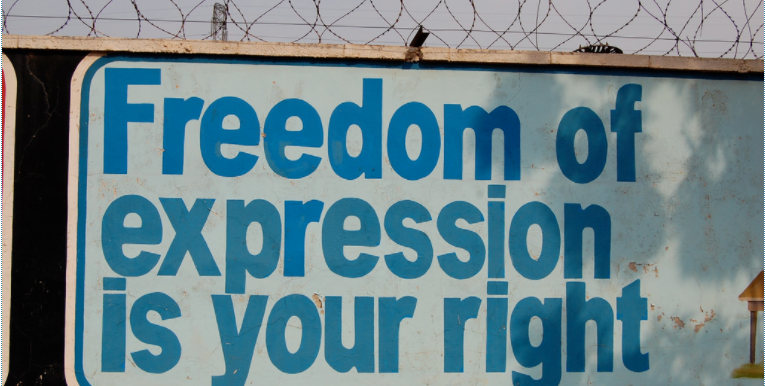The right of access to information and freedom of expression is one of the basic rights stipulated in the Constitution of the Republic of South Sudan and international covenants. It is also considered an important human right because it is fundamentally related to human life.
The application or practice of these rights in South Sudan faces repression and threats by some elements of the country's security forces because they believe that these rights constitute a limitation of the regime in some areas.
A South Sudanese lawyer, Khansa Ibrahim, says that every South Sudanese citizen has the right to obtain information or express his opinion through various media, whether written or audio, without disturbing the public order of the state of peace and public morals according to the country's constitution.
She said in the event of publishing false information that could disturb the state system, there is the Penal Code of 2008 that regulates and governs such cases.
“Freedom of expression is a right for which the person who publishes information is responsible, provided that it is sound and reliable from certain sources," she said.
She indicated that if a person publishes unreliable information, it can mislead people, and this is punishable by law.
Ibrahim explained that the South Sudanese society is democratic and any person can express his opinion as well as receive and give information to others in various ways.
Deng Achuil, a South Sudanese citizen believes that the right to express opinions in the country is not available, so if a person speaks sometimes, he does not express freely because of the challenges that exist in the country. He hopes that these challenges will be removed to allow everyone to express their opinions freely.
“Journalists sometimes face harassment by security personnel while obtaining information,” Achuil said.
"The harassment of journalists impedes access to and dissemination of information, and the authorities must give journalists complete freedom to express their opinions in light of the accountability of anyone who violates the law," Achuil added.
A South Sudanese journalist, Helen Toby, says that freedom of expression in the country's constitution does not extend to journalists.
"I think that the government and the people should understand the role of journalists. We are the voice of the people and we must provide information to the people. We are not here to make you look bad or oppose your work, so it is good for everyone to understand their roles." She explained.
Toby stressed that journalists must understand the role of the government and vice versa, indicating that sometimes journalists cannot cover events freely because they are arrested.
"You may be arrested just because you cover topics that bring peace to the people," she said.
Awad Dennis said that freedom of expression is almost non-existent in the country, especially in the journalistic field, and sometimes the government, when it seems that there is dangerous information that may harm its interests, suppresses the various media outlets.
He added, "The method of obtaining information in South Sudan faces the forms of concealment of information from journalists, and obtaining information in South Sudan is not an easy matter."
The head of the South Sudan Journalists Union, Patrick Oyet Charles, says that freedom of expression exists in the country and the government has allocated institutions such as the National Media Authority and the Information Commission to develop the right of expression and access to information, and as a state that recently emerged from civil war, some individuals in the government suppress freedom of expression and some were arrested only for expressing their opinions.
"Sometimes journalists do their work and are arrested without reason. This happens, but this is not the government, but rather individuals who did not understand the significance of that," Oyet added.
Oyet indicated that there is still a long way to go to understand the practice of freedom of expression in the country, especially in the states, because there is no understanding between members of the regular forces and journalists.
In the same context, the Minister of Information and Communications of Central Equatoria State, Andruga Mabe, said that South Sudanese citizens enjoy these rights because they are in the Bill of Rights in the country's constitution.
The minister said, "The government's goals are to achieve peace, and anything that can achieve this is considered among its goals. The government does not encourage the dissemination of news that can reinforce discrimination among the people of the country, not because of the lack of freedom of expression, but because of the lack of public interest."
While activist Akuc Ajang, head of the Alliance of Civil Society Organizations in South Sudan, says that freedom of expression is a cornerstone of democracy, and it is a right enshrined in the Constitution of South Sudan and the Revitalized Peace Agreement.
Ajang stressed that the position of civil society is that South Sudanese citizens should express their opinion without causing sedition, war, quarrel, or violence.
"The right of expression stops when it crosses the borders of others, and this is a right that we support as a civil society. The right of expression and access to information exists in South Sudan, so you have to express your opinion freely and ask and demand and no one can take it from you." Ajang explained.
Although the Constitution of South Sudan granted everyone the right to obtain information and freedom of expression, many obstacles and challenges prevent the exercise of these rights, most notably the harassment of people by security forces sometimes to express their opinions, and blocking the way for others to obtain information which may help many to achieve general interest.




